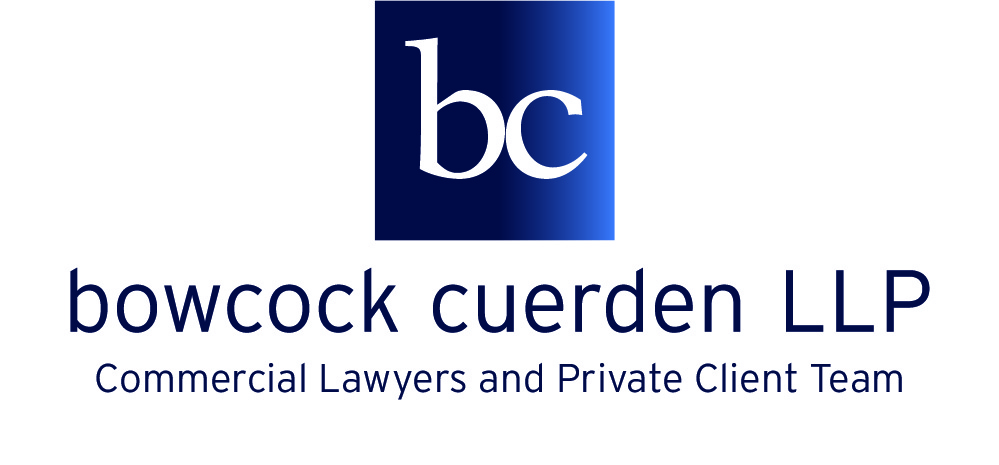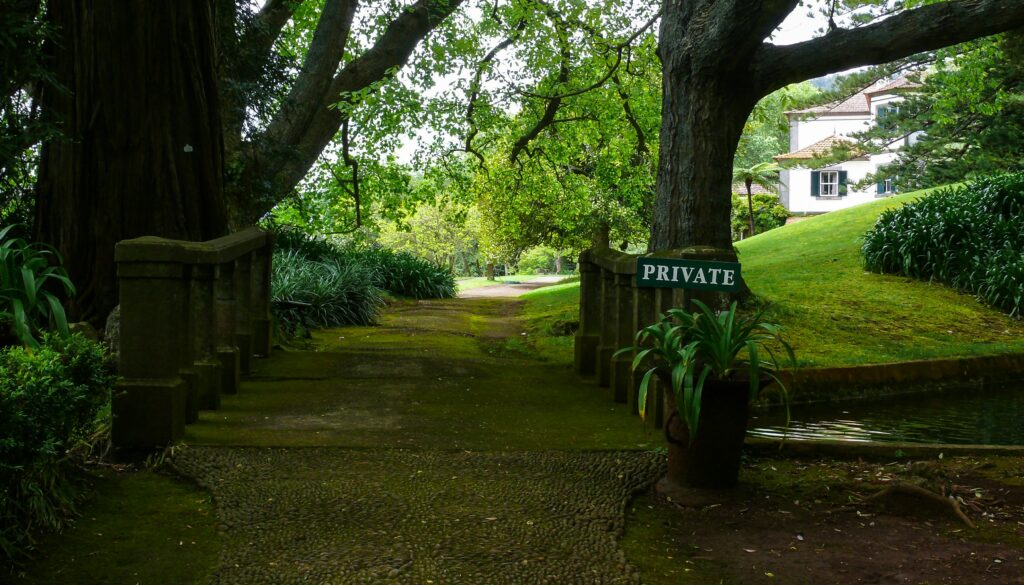Establishing title to land by adverse possession (Part 2)
Establishing title to land by adverse possession; (Part 2)
This is the second of two articles looking at acquisition of title by adverse possession (often referred to as “squatters rights”).
Background
“Adverse possession” of land is possession of land in circumstances which are inconsistent with the title of the true owner. The person in adverse possession (‘the squatter’) must prove “Factual Possession” accompanied by an “Intention to Possess”. The squatter’s adverse possession must be “uninterrupted” for the requisite period. Here we concentrate on the required period of adverse possession.
Unregistered land
Where title to the land is unregistered, the required period of adverse possession is a continuous period of at least 12 years from the date when the true owner was first dispossessed.
However, longer periods apply where the true owner is the Crown (including the Duchy of Cornwall and the Duchy of Lancaster), or is a “spiritual or eleemosynary corporation sole” (primarily religious office holders/bodies), or where the land is foreshore (i.e. the shore and bed of the sea and of any tidal water, below the line of the medium high tide between the spring tides and the neap tides).
Registered land
Where title to the land is registered, there are two potential periods:
- If adverse possession has been enjoyed for a continuous period of at least 12 years from the date when the true owner was first dispossessed and at least 12 years of that period occurred before 13 October 2003, then that period is sufficient to entitle the squatter to apply to the Land Registry to be registered with a possessory title in accordance with the ‘old’ rules, which applied prior to the coming into force of the rules established by the Land Registration Act 2002.
- If adverse possession has been enjoyed for a continuous period of at least 10 years from the date when the true owner was first dispossessed, and some part of that period occurred on or after 13 October 2003, then that period is sufficient to entitle the squatter to apply to the Land Registry to be registered with a possessory title in accordance with the ‘new’ rules, established by the Land Registration Act 2002.
Although the required period of adverse possession is shorter under the ‘new’ rules established by the Land Registration Act 2002, the law and procedure for securing a possessory title has been made more rigorous. We can provide further advice about this as necessary.
Aggregation of periods of adverse possession
Continuous periods of adverse possession enjoyed by successive squatters of either unregistered or registered land can be aggregated so as to achieve the required period of possession (i.e. the new squatter takes the benefit of the time during which each of their predecessors was in occupation and can add it to their own period of occupation).
A squatter can pass on their interest in the land, for example to a purchaser or under a will or intestacy. In the latter two cases, the squatter’s personal representatives will be able to claim adverse possession on behalf of a deceased squatter. However, there is no need for a formal transfer of the interest they hold.
Similarly, a squatter can claim through the possession of any predecessors in title.
Break in possession
A squatter may voluntarily go out of possession without being succeeded by another squatter, or the true owner may recover possession (with or without the use of possession proceedings). In either case, there is a break in the squatter’s period of adverse possession – often described as when ‘time stops running’ – which means that if the period of possession up to that date falls short of the required period of possession, the benefit of that period is lost completely.
So, if the original squatter or anyone else goes into adverse possession on a later date, the required period of possession must be calculated from that later date.
Break in possession – ousting the squatter
The true owner only needs to recover possession for a brief period. Whether a break in control or possession has occurred may be a matter of fine margins.
In a decided case, the true owners of a disputed piece of garden land entered onto the land for approximately an hour as part of an abortive effort by them to erect a new fence on what they considered to be the correct boundary. The attempt ended when the squatters (whom the true owners had not expected to be at home) called the police, following which the true owners withdrew.
The court decided that squatters never did not lose control or possession of the strip to the true owners, although it was a close-run thing; if squatters had stayed out shopping for another hour, the true owners may have been successful.
If the squatter is ousted by another squatter, the period of adverse possession is not treated as having been broken.
However, where title to the land is registered, the squatter may apply within six months of being evicted by the registered proprietor, provided that 10 years’ adverse possession had accrued before the eviction. There are exceptions if the eviction was pursuant to a judgment for possession, if the squatter is a defendant to a claim for possession, or if a judgment for possession had been given in the last two years.
Break in possession—effect of notices
Nothing less than the resumption of exclusive possession or the issue of proceedings to recover possession will stop time running. There must be an act of interruption which ends the squatter’s exclusive possession, rather than an act which simply challenges the squatter’s right to possession. A decided case contains the following statement: ‘If the paper title owner did something less than exclude the adverse possessor, such as plant a flag, put up a notice or make an oral declaration of ownership, the adverse possessor would continue to have factual possession’.
Break in possession—proceedings
Bringing possession proceedings prevents the true owner from running out of time being time under the Limitation Act.
However, if those proceedings are subsequently discontinued, struck out, or simply abandoned, it has no effect on the running of the limitation period : the position is as if the proceedings had never been issued at all. It is not clear whether bringing a second action would be an abuse of process or whether the true owner is entitled to argue that wrongful possession gives rise to a fresh cause of action on each day.
Obtaining a judgment for possession does not of itself stop time from running. Delay in enforcing a judgment for possession does not affect the validity of the judgment.
However, without leave of the court, a judgment cannot be enforced more than six years after it is given. This only applies to new ‘actions’ on a judgment and not to the enforcement of existing judgments.
Possession proceedings also prevent an application from being made under the 2002 Act in respect of land title to which is registered. However, if the proprietor fails to carry out the eviction within two years of obtaining an order for possession, the squatter is entitled to apply again and will then be registered as proprietor.
Matters affecting the calculation of the required period
The true owner may be able to resist a claim of adverse possession on the basis of any one or more of the following:
- the true owner was subject to some form of incapacity which prevented them from challenging the squatter’s possession within the initial period of twelve years after they were dispossessed (see Incapacity below)
- the squatter acknowledged the title of the true owner or paid the true owner for the squatter’s occupation of the land (see Acknowledgement of title or payment below)
- the claim of adverse possession is vitiated by fraud, deliberate concealment, or mistake (see Fraud, deliberate concealment or mistake below)
Incapacity
The required period of possession is extended where the true owner was either a minor or lacked capacity (within the meaning of the Mental Capacity Act 2005) to conduct legal proceedings at the time when they were dispossessed. The extension lasts for six years from the time when the person becomes an adult, or recovers their mental capacity, or dies. However, a claim cannot be brought more than 30 years after the date of dispossession in any event.
Acknowledgement of title or payment
Adverse possession may be interrupted, and time will start running afresh from the date of:
- an acknowledgment of the true owner’s title made at some point before the squatter has been in adverse possession for the whole of the required period (see “Longstop” below), or
- a payment of part of the principal or interest due in respect of a debt.
Acknowledgement
An acknowledgment will stop time running in favour of the squatter if it is in writing, is signed by a person in possession (in whose favour time is running) or by their agent (e.g. a Solicitor), is made to the true owner or their agent, and is not procured as a result of undue influence, fraud or duress.
The document need not expressly acknowledge the true owner’s title. It is sufficient if the document implicitly recognises the true owner’s title. For example:
- putting forward a proposal to rent or buy the property in question
- petitioning the owner not to sell it
- enquiring (through Solicitors) whether the paper title owner had any plans to sell the property.
However, the recognition of title must be clear. In a decided case the court held that a ‘without prejudice’ letter offering to buy the freehold title was inadmissible as it had been written on a without prejudice basis, with a view to settling previous proceedings which were not ongoing.
It did not amount to a renewed acknowledgment of title (which would have started time running again). For a renewal to occur, the squatter would have to write and sign a document, affirming or repeating the acknowledgment.
Although an oral acknowledgment is not effective, it may nevertheless be evidence that the squatter did not have the necessary intention to possess, and so was not in adverse possession at all.
Acknowledgment to a third party (such as HMRC) will not interrupt adverse possession and start time running again.
Payment
When a squatter pays a sum which is being claimed by the true owner, the inference which is inevitably to be drawn is that the squatter is in possession with the consent of the true owner or under a tenancy, and as a result their possession cannot be ‘adverse’. However, the payment must be made:
- by the squatter, or their agent
- to the true owner, or their agent
Longstop
A current limitation period can be repeatedly extended by further acknowledgments or payments, but once the limitation period has expired, a subsequent acknowledgment or payment cannot revive the cause of action.
Fraud, deliberate concealment or mistake
In case of fraud, deliberate concealment or mistake, the required period does not begin until the date on which the fraud, concealment or mistake is discovered or could, with reasonable diligence, have been discovered.
The concealment can be perpetrated by either:
- the squatter or their agent (including an independent contractor), or
- the squatter’s predecessor, or their agent
A true owner does not have to prove that the squatter knew that a fact which they deliberately concealed was relevant to the true owner’s cause of action, nor do they have to prove that the squatter’s behaviour was unconscionable or dishonest. The burden of proving that a fact could not have been discovered with reasonable diligence is on the true owner.
(This article is not intended to be comprehensive or to provide specific legal advice. It should not be relied upon in the absence of specific advice given in relation to particular circumstances.)
For further information, please contact: Natalie Linehan, Andrew Williamson or David Thorp




